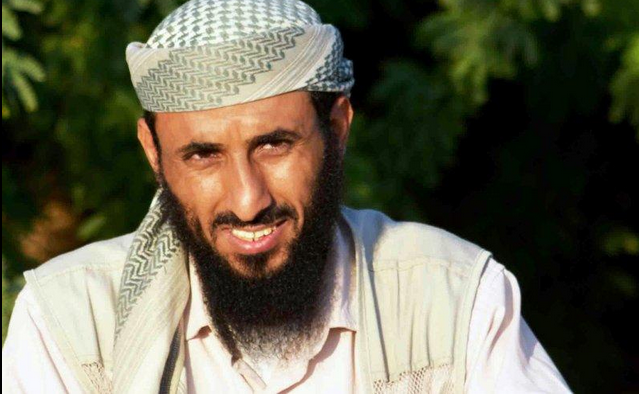US Drone Strike Kills Yemeni Al Qaeda Chief Nasir al-Wuhayshi, Group Says

Update as of 2:00 a.m. EDT: An al Qaeda spokesman has confirmed that Nasir al-Wuhayshi, the head of al Qaeda in Yemen, was killed in a U.S. airstrike. His deputy Qassim al-Rimi has been named the group's new leader, the media wing of al Qaeda reportedly said, in a video released early Tuesday.
Two other members of the militant group were also killed in the airstrike on Monday, Al Jazeera reported.
Original story:
United States drone strikes in Yemen and Libya reportedly killed two major al Qaeda leaders in the past two days. Among the militants was the second-in-command of al Qaeda’s global terrorist franchise. He was killed on Monday in Yemen, according to Yemeni officials.
Nasir al-Wuhayshi, also known as Abu Basir, was a Yemeni citizen and the leader of al Qaeda in the Arabian Peninsula (AQAP), al Qaeda’s branch in Yemen, which is considered to be the most serious direct threat to the U.S. American officials confirmed that Abu Basir was a target but have not yet confirmed his death.
Social media accounts affiliated with AQAP claimed on Monday that al-Wuhayshi had been “martyred.” AQAP affiliates also claimed that Qasm al-Rimi, known as Abu Hureira al-Sana'ani, had been appointed as his replacement.
Abu Basir was promoted to the position of “general manager” of al Qaeda in 2013, after having served as the head of AQAP since 2009. Past items on his jihadi resume include what has been as described as “personal secretary” for Osama Bin Laden and a long-time supporter of current al Qaeda leader Ayman al-Zawahiri.
AQAP is specialized in bomb making and was responsible for the explosive used in 2009 by the so-called underwear bomber, Umar Farouk Abdulmutallab, and a printer-cartridge bomb sent to the U.S. via postal mail a year later.
On Saturday, a U.S. drone strike in Libya killed Mokhtar Belmokhtar, a former commander of al Qaeda in the Islamic Maghreb, who remained loyal to al-Zawahiri.
“Though his death … will do little to address the broader chaos in Libya,” according to a report from the Soufan Group. “It will remove a dangerous individual from a crowded battlefield and bring a sense of justice to the families of Belmokhtar’s many victims.”
There have been several reports of U.S. drone strikes in the country since former Libyan Dictator Muammar Gadhafi was ousted in 2011, but none have been confirmed until now.
AQAP has also claimed that the U.S. drone strikes killed several of its leaders since early 2015, but none have been confirmed since U.S.-backed Yemeni President was forced into exile last year.
None of al Qaeda’s core affiliates, such as AQAP and AQIM, have pledged allegiance to the Islamic State group, also known as ISIS. Despite that, al Qaeda’s strongest affiliates remain a massive U.S. target in the region.
“Right now, a sophisticated, centrally directed attack is probably more likely to come from core al Qaeda or an affiliate like AQAP,” a U.S. counterterrorism official who was not authorized to speak on the record recently told International Business Times.
© Copyright IBTimes 2024. All rights reserved.





















